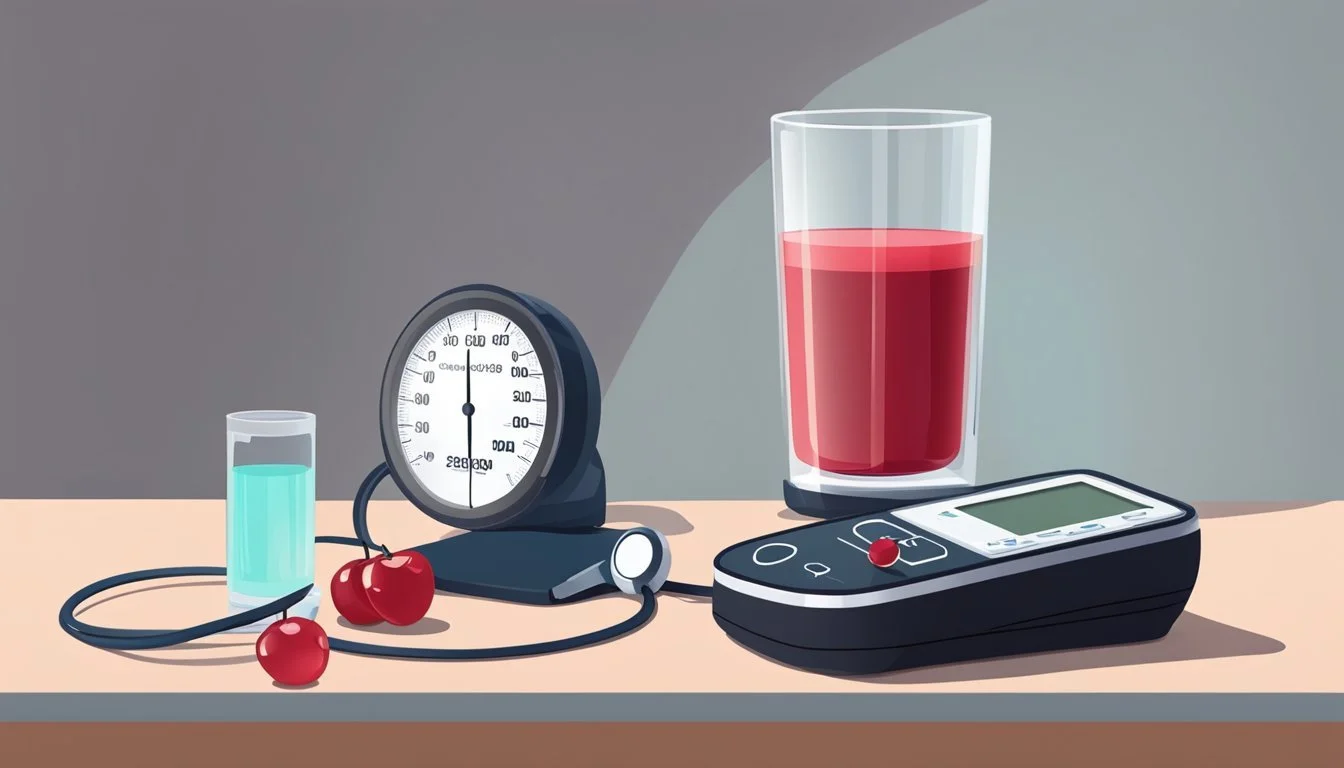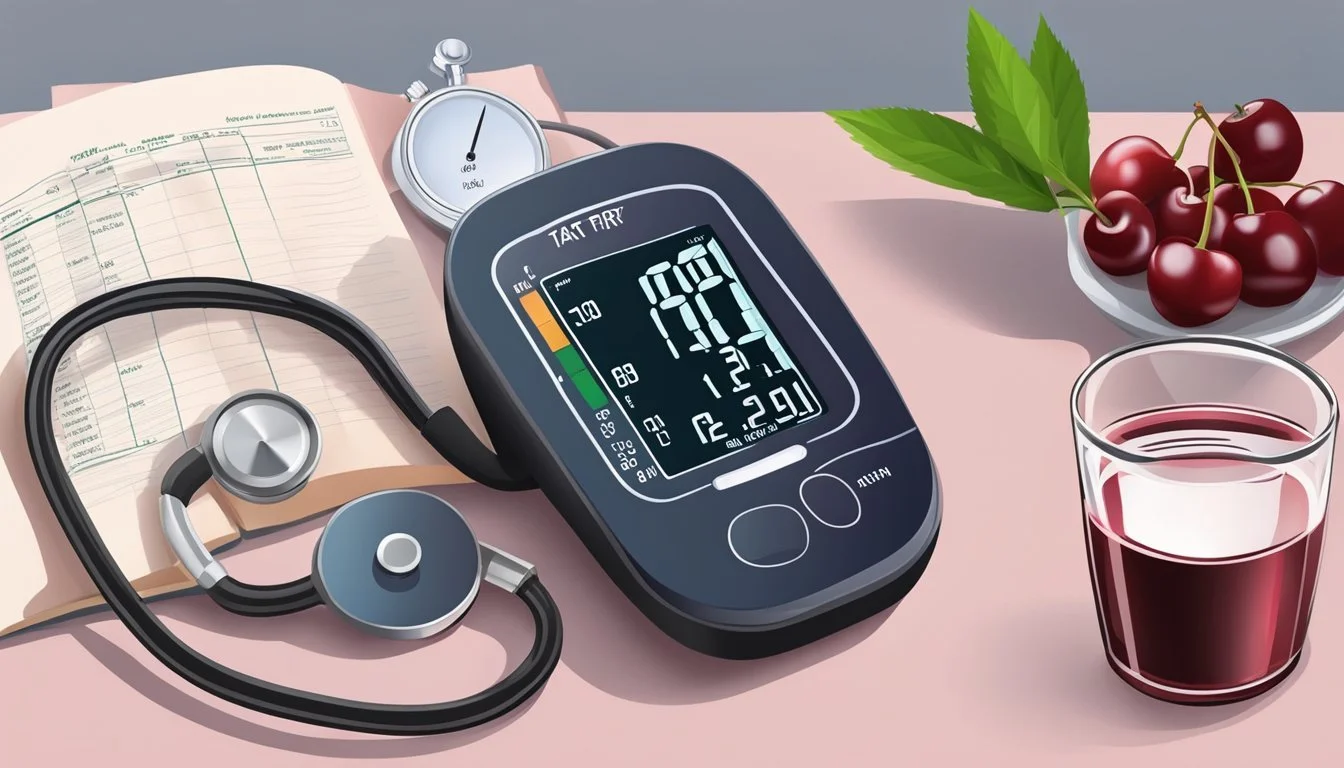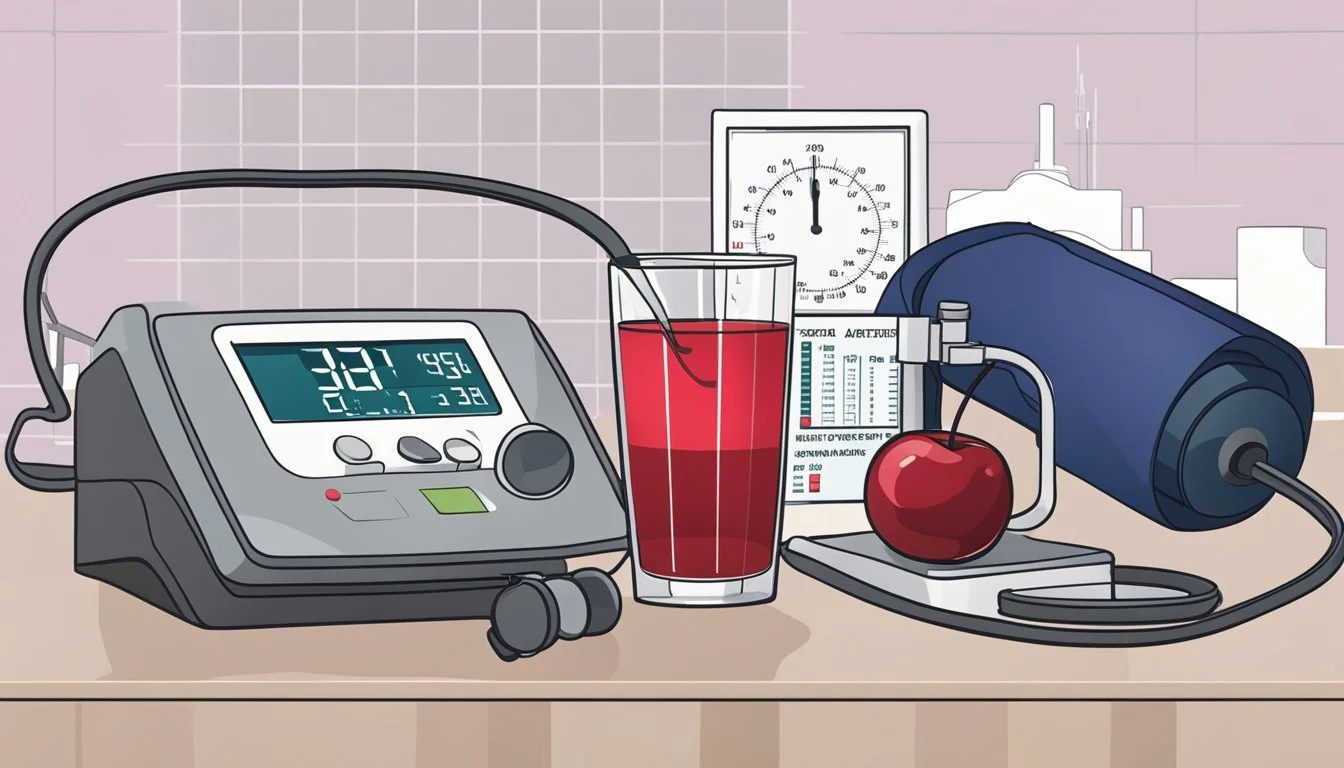Can Consuming Tart Cherry Juice Lower Blood Pressure?
Unveiling the Heart-Healthy Truth
Tart cherry juice has garnered attention for its potential health benefits, particularly in the context of cardiovascular well-being. Studies indicate that this fruit juice may have a positive impact on blood pressure levels. The naturally occurring compounds found in tart cherries, such as potassium, contribute to its reputed ability to help regulate blood pressure. Potassium is known to aid in maintaining a healthy balance of fluids in the body and may lessen the risk of stroke associated with elevated blood pressure.
Research suggests that tart cherry juice, rich in a variety of vitamins and minerals, might act similarly to some blood pressure medications. The consumption of tart cherry juice has shown promising results in both its capacity to reduce the intensity of hypertension and to support overall heart health. The bioactive compounds present in tart cherries, including anthocyanins, are thought to play a role in reducing inflammation and could possibly have a favorable effect on blood vessel function, further influencing blood pressure regulation.
While the evidence points towards tart cherry juice being a beneficial addition to one’s diet for the management of blood pressure, it is essential to consider the broader scope of an individual's health practices. It is not suggested as a standalone remedy but rather as one component in a comprehensive approach to cardiovascular health. As research continues to unravel the nuances of tart cherry juice's impact, it remains a subject of interest for those looking to natural food sources for health improvements.
The Role of Tart Cherry in Blood Pressure Regulation
Exploring the relationship between tart cherry juice consumption and blood pressure regulation reveals its potential impact on vascular function and the role of antioxidants in mitigating hypertension.
Understanding Blood Pressure and Hypertension
Blood pressure is the force exerted by circulating blood on the walls of blood vessels, and hypertension is a chronic condition characterized by persistently elevated blood pressure. Systolic blood pressure—the higher number in a blood pressure reading—represents the pressure in the arteries during heartbeats. Normal systolic blood pressure is typically less than 120 mmHg. Hypertension is diagnosed when readings consistently exceed 130 mmHg for systolic pressure. Managing blood pressure is crucial as chronic hypertension can lead to serious cardiovascular diseases.
How Tart Cherry Juice Affects Vascular Function
Tart cherry juice contains compounds that have been studied for their role in improving vascular function. Its consumption has shown promise in affecting blood pressure readings, especially systolic blood pressure. Montmorency tart cherries, in particular, are highlighted in studies for their vascular benefits. They are rich in polyphenolic compounds that might help in the relaxation and dilation of vascular tissues, which can reduce the resistance the heart faces when pumping blood, potentially lowering blood pressure.
The Impact of Antioxidants on Blood Pressure
Antioxidants found in foods like tart cherries are crucial in the fight against oxidative stress, a contributing factor to hypertension. Tart cherry juice is abundant with various antioxidants, including flavonoids and anthocyanins. These antioxidants may have a regulatory effect on blood pressure. They act on the endothelial cells lining blood vessels, improving endothelial function and contributing to the reduction of systolic blood pressure. However, it’s important to note that while current research is promising, more high-quality studies are needed to firmly establish the role of tart cherry juice in blood pressure regulation. It should not replace conventional treatments but could potentially be considered as a complementary approach.
Nutritional Profile of Tart Cherry Juice
Tart cherry juice is acclaimed for its concentration of nutrients that may confer various health benefits, including the potential to affect blood pressure. The juice is particularly rich in vitamins, minerals, and antioxidants with notable sugar content.
Key Nutrients in Tart Cherry Juice
Tart cherry juice contains several essential nutrients that contribute to its health profile:
Vitamins: It is an excellent source of vitamin C and also provides vitamin A, which are important for immune function and vision.
Minerals: Potassium is abundantly found in tart cherry juice. Other minerals include magnesium, calcium, phosphorus, iron, and zinc.
Antioxidants and Polyphenols: Tart cherry juice is rich in these compounds, which may help reduce oxidative stress and inflammation in the body.
Sugar Content and Glycemic Index
The sugar content in tart cherry juice can vary depending on the brand and whether the juice is sweetened. On average:
An 8-ounce serving typically contains around 20 to 30 grams of sugar.
The glycemic index (GI) of unsweetened tart cherry juice is relatively moderate, which means it does not cause rapid spikes in blood sugar levels. However, this can fluctuate with added sugars.
Potential Health Benefits Associated with Tart Cherries
Tart cherries are a focus of interest due to their rich nutrient content and potential to aid various health conditions. Research suggests that incorporating tart cherry juice into a diet could offer a range of health benefits, particularly in terms of reducing inflammation and oxidative stress, enhancing sleep quality, aiding muscle recovery post-exercise, and mitigating symptoms associated with arthritis and gout.
Reducing Inflammation and Oxidative Stress
Studies have identified tart cherry juice as a potent source of antioxidants, which play a crucial role in reducing oxidative stress and diminishing inflammation. These effects may contribute to cardiovascular health by potentially lowering the risk of chronic diseases.
Sleep Improvement and Melatonin Content
Tart cherries are naturally rich in melatonin, a hormone responsible for regulating the sleep-wake cycle. Consuming tart cherry juice has been associated with improved sleep quality, making it a subject of interest for individuals grappling with sleep disorders.
Effects on Recovery and Muscle Soreness
Recovery following strenuous exercise is crucial for athletes, and tart cherry juice may be beneficial in this regard. Its consumption can decrease muscle soreness and expedite recovery by counteracting inflammation and muscle damage due to exercise.
Connections to Arthritis and Gout
The anti-inflammatory properties of tart cherries may offer relief for those with arthritis and gout, conditions characterized by painful joint inflammation. Regular consumption of tart cherry juice might help alleviate the severity of symptoms and reduce the frequency of gout attacks.
Scientific Research and Clinical Studies
Recent clinical studies on tart cherry juice suggest a potential for lowering blood pressure and improving cardiovascular health, primarily through the beverage's anti-inflammatory and antioxidant properties.
Randomized Controlled Trials
In the realm of cardiovascular research, randomized controlled trials (RCTs) provide the most reliable evidence. A notable RCT has shown that consuming 480 mL of tart cherry juice daily leads to significant reductions in biomarkers of inflammation and oxidative stress in elderly adults. Participants in these trials were randomly assigned to either a tart cherry juice group or a placebo group. Findings from another trial conducted at Northumbria University revealed that tart cherry juice could lower high blood pressure to a degree comparable to medication.
RCT Example:
Objective: Examining the effects of tart cherry juice on blood pressure and inflammatory markers.
Method: Daily consumption of 480 mL by men and women aged 65-80, compared to a control drink over 12 weeks.
Outcome: Lowered blood pressure and reduced inflammation.
Meta-Analysis and Systematic Reviews
Meta-analyses and systematic reviews synthesize results from multiple studies to ascertain broader trends. These comprehensive analyses are still forthcoming for tart cherry juice, but they would provide a more robust confirmation of the effects noted in individual RCTs. They hold the potential to confirm if tart cherry juice consumption consistently benefits those with cardiovascular disease by lowering blood pressure and combating inflammation and oxidative stress across diverse populations and study designs.
Status of Meta-Analyses and Systematic Reviews:
Research is ongoing; comprehensive reviews are needed to validate initial RCT findings.
They determine the broader effectiveness and optimal dosage of tart cherry juice for cardiovascular health improvements.
Risks and Considerations for Tart Cherry Juice Consumption
While tart cherry juice may offer cardiovascular benefits such as helping to lower high blood pressure, consumers should be aware of its potential side effects and interactions with medications. It is also important to consider the appropriate dosage and the need for moderation to avoid excessive intake of sugars, whether natural or added.
Potential Side Effects and Interactions with Medication
Tart cherry juice contains compounds that may interact with certain medications. For individuals on blood thinners, such as warfarin, it is crucial to consult a healthcare provider since tart cherry juice may enhance the effects of these medications. Additionally, tart cherry juice has a high sugar content; therefore, those with conditions like diabetes should monitor their consumption carefully to avoid blood sugar spikes.
Side Effects may include:
Gastrointestinal discomfort due to sorbitol, a sugar alcohol present in cherries.
Increased risk of dental issues if consumed in large quantities due to natural acids and sugars.
Dosage and Moderation
The appropriate dosage of tart cherry juice can vary based on several factors, such as age, health status, and the presence of any medical conditions. Although there is no standardized dose for lowering blood pressure, consuming tart cherry juice in moderation is advisable to minimize the risks associated with overconsumption.
Moderation is key to avoid:
Excessive calorie and sugar intake, especially from juices with added sugars.
Potentially negative health effects from overconsumption of fruit juices.
Consumers should always read product labels for nutrition information and, if necessary, consult with a healthcare professional to determine an individualized approach to including tart cherry juice in their diet.
Conclusion
Consuming tart cherry juice has been associated with beneficial effects on cardiovascular health, notably through its potential to reduce blood pressure. Montmorency tart cherry juice in particular has been highlighted for its cardiovascular benefits. Research indicates that specific compounds found within tart cherry juice may play a role in lowering systolic blood pressure.
It is important to note that the juice's benefit on blood pressure appears to be most pronounced in individuals with mildly elevated levels. The presence of potassium and antioxidants in tart cherry juice is believed to contribute to its positive impact on blood pressure regulation.
While these findings are promising, they should be considered as part of a balanced diet and a healthy lifestyle. The effects of tart cherry juice on blood pressure may complement, but not replace, other medical treatments and dietary measures.
In the realm of cardiovascular health, the consumption of tart cherry juice could be a supportive natural strategy for managing blood pressure levels. However, the exact dosage and long-term effects require further investigation. Individuals interested in incorporating tart cherry juice into their diets should consult with healthcare professionals to ensure it aligns with their specific health needs and conditions.




